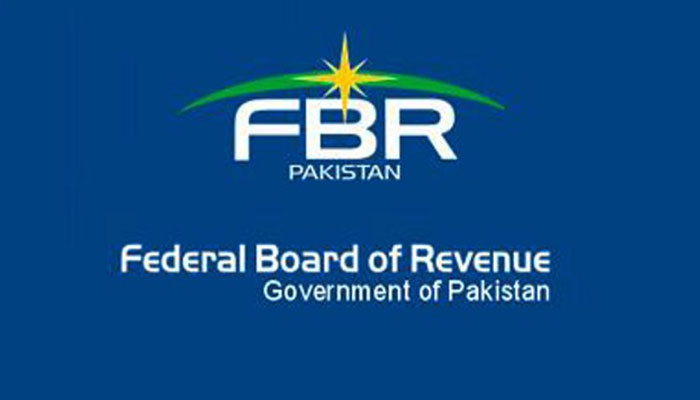FBR starts stocktaking of oil marketing companies
KARACHI: The Federal Board of Revenue (FBR) has started stocktaking of oil marketing companies after a sudden sharp increase in prices of petroleum products – a move that aims to prevent tax losses related to possible underreported sales, sources said on Saturday.
As the government pushed prices of petroleum products, the Large Taxpayers Unit Karachi asked petroleum companies and refineries to provide details of their stocks till midnight of June 25. They were also asked to provide invoices issued against supplies that were not realised prior to increase in petroleum prices.
On Friday, the government announced a sharp increase in prices of petroleum products. The unusual announcement may benefit oil marketing companies to make supplies of cheaper price fuel at the higher price announced by the government, according to the sources.
The government raised petrol price by Rs25.58 per litre to Rs100.10. Similarly, price of high speed diesel was increased by Rs21.31 per litre to Rs101.46.
The sources said oil companies may declare higher sales at lower price in back dates in order to avoid or evade sales tax. Further, the company may also claim inventory losses due to sudden change in prices through their income tax returns that will be due in September.
Significant sales tax impact is expected after upward revision of prices and it would help revenue generation during next month if the prices are kept at the current level.
Lockdown-led subdued consumption has been estimated to wipe away Rs30 billion worth of sales tax on petroleum products for the FBR in the past four months.
Sales tax collection from petroleum products was estimated to fall 23 percent to Rs98 billion from March to June. That compared with Rs128 billion collected during the corresponding four months a year earlier. Lockdown following the coronavirus outbreak in March brought economic activities to a grinding halt, while consumption of petroleum products also waned during the period. According to Oil Companies Advisory Committee, sales of petroleum products fell 12 percent to 1.48 million tons in May. That compared with 1.67 million tons in the same month of the last year.
Sales tax collection from petroleum, lubricant and oil products has been consistently declining since the lockdown imposed in late March. Although the lockdown has eased, oil shortage surfaced due to declining reserves in the country. The revenue collection shortfall, under the sales tax on oil products head, was recorded at 13.59 percent in March, compared with the same month of the last year. It continued with decline of 35.8 percent and 35 percent in April and May this year. Shortfall in sales tax collection from POL products has been estimated at around Rs7 billion in June.
-
 Teyana Taylor Reveals What Lured Her Back To Music After Earning Fame In Acting Industry
Teyana Taylor Reveals What Lured Her Back To Music After Earning Fame In Acting Industry -
 Prince William Shows He's Ready To Lead The Monarchy Amid Andrew Scandal
Prince William Shows He's Ready To Lead The Monarchy Amid Andrew Scandal -
 Lux Pascal Gushes Over Role In Tom Ford's 'Cry To Heaven': 'I Just Wanted To Be Part Of This Picture'
Lux Pascal Gushes Over Role In Tom Ford's 'Cry To Heaven': 'I Just Wanted To Be Part Of This Picture' -
 Near-blind Refugee Found Dead In Buffalo After Release By US Border Patrol
Near-blind Refugee Found Dead In Buffalo After Release By US Border Patrol -
 Firm Steps In Forcing Andrew’s Hand: ‘Can No Longer Keep A Promise'
Firm Steps In Forcing Andrew’s Hand: ‘Can No Longer Keep A Promise' -
 Kenyan Man Accused Of Recruiting Men To Fight In Ukraine
Kenyan Man Accused Of Recruiting Men To Fight In Ukraine -
 'The Wrong Paris' Star Veronica Long Shares What New Crime Series 'Blue Skies' Is About
'The Wrong Paris' Star Veronica Long Shares What New Crime Series 'Blue Skies' Is About -
 King Charles Remains Immersed In Work Amid Andrew Scrutiny
King Charles Remains Immersed In Work Amid Andrew Scrutiny -
 Bobby J. Brown's Passing Adds To Growing List Of Celebrity Deaths In 2026
Bobby J. Brown's Passing Adds To Growing List Of Celebrity Deaths In 2026 -
 Prince William Fears For Andrew's Mental Health
Prince William Fears For Andrew's Mental Health -
 Paige DeSorbo Breaks Silence On New Relationship With Joe D'Amelio
Paige DeSorbo Breaks Silence On New Relationship With Joe D'Amelio -
 'Marshals' Showrunner Reveals If Kayce And Beth Will Cross Paths In 'Yellowstone' Spinoff
'Marshals' Showrunner Reveals If Kayce And Beth Will Cross Paths In 'Yellowstone' Spinoff -
 Belgium Watchdog Launches Antitrust Probe Into Google Ads Business
Belgium Watchdog Launches Antitrust Probe Into Google Ads Business -
 Andrew Ready To Fight Back: 'He's Very Vengeful'
Andrew Ready To Fight Back: 'He's Very Vengeful' -
 After Surpassing 100 Million YouTube Subscribers, BLACKPINK Returns With New Release
After Surpassing 100 Million YouTube Subscribers, BLACKPINK Returns With New Release -
 Rihanna Sends Fans Into Frenzy With BTS Footage Of Music Making: Watch
Rihanna Sends Fans Into Frenzy With BTS Footage Of Music Making: Watch




